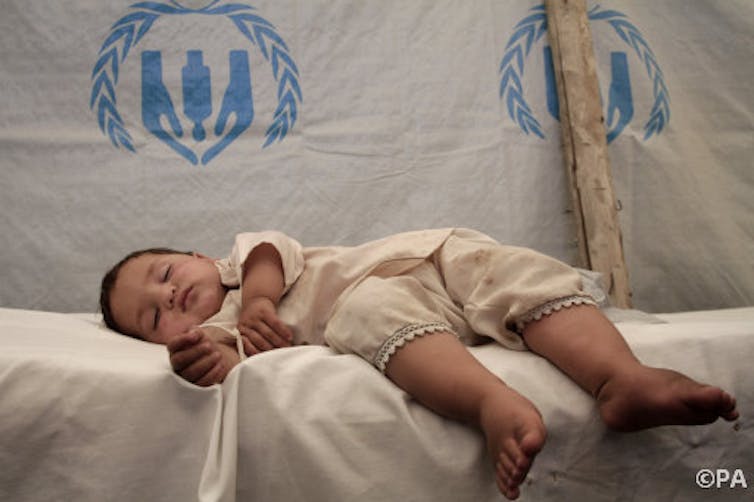Six young men arrived at Kabul Airport on Tuesday, following deportation from Norway. Norway deports about this number of rejected asylum seekers every week, but it is not alone – Belgium, Germany and the UK also routinely deport. The argument goes that these young men are not in danger, that they are just “looking for a better life”, that they face no particular difficulties if returned.
Aref Hassanzade made it to Belgium four years ago as a minor and claimed asylum. He was refused and appealed again and again. Terrified of returning, he went on hunger strike. Finally, ground down by the refusal to believe the truth of his story, the 20 year old agreed to return “voluntarily” to Afghanistan – that is, without handcuffs and a guard. According to his mother, he was killed by the Taliban in May 2013.
Working here in Afghanistan on the consequences of deportation for those people Scott Morrison, Australia’s immigration minister, ignorantly and incorrectly labels illegal arrivals, I have come across a number of similar stories. People leave for a range of reasons, some of which would require a generous (but not unreasonable) reading of Article 1 of the 1951 Refugee Convention to qualify for refugee status. However, some of those who are rejected and forcibly returned would meet even the narrowest of interpretations – they fear that they will be killed because of their ethnicity, their religion or their membership of a particular social or political group.
The fear that impels people to leave forces them to leave again if deported. I spent September 2012 – March 2013 in Afghanistan talking to this group of people and their families. A striking finding (confirmed by other deportation scholars here in Afghanistan and in many other countries) was the number of those deported people who were planning on leaving again. In many cases, these were young men who had already made a long and difficult journey through Iran, Turkey and Greece, who had risked their lives under trucks and in boats, slept on park benches and in doorways, been arrested by the police and attacked by racists – and still they were ready to leave again.

For anyone who has spent time in Afghanistan (or the Democratic Republic of Congo, Eritrea, Ethiopia or Somalia) it is obvious why people leave – even if most people actually stay. There is the ongoing insecurity – not knowing whether one will be caught in an explosion, like the family of six in Kabul on Friday night, or the little girl killed in a gun battle on the Ghorband Road to Bamiyan on Saturday, or the uncles of a student of mine forced to run from another battle outside Ghazni on Sunday.
Aside from the conditions of generalised violence that can legitimately provide grounds for humanitarian protection, there is the widespread corruption that means bribes are required to get access to education, employment, health and justice and an official rate of unemployment at 35% (this data is for 2008 but withdrawal is driving this figure up rapidly). While these may not be grounds for asylum or the granting of a work visa, they are certainly compelling reasons to migrate.
The urge to remigrate
If on return, people are faced with these same conditions, inevitably migration will once again seem like the only option – but post deportation, the pressure to leave will be even stronger. Many of the young men will have incurred debts the first time round which they will not have paid off, and which they will be unable to repay so long as they stay in Afghanistan. Others will be unable to bear the shame of failure, in particular when so many will have other relatives who have been successful and are sending back money. And finally, some these young men will have found friends and lovers who are urging them to return.
And they will. About 80% of those I spoke to left within two years – just as long as it took to get a little money together. The others were preparing to go. And most were planning on returning to the country that had deported them, though a few had chosen other destinations. This raises an interesting question: what is the point of deportation? These governments deport only a minority of those they reject. It is a brutal, expensive and futile exercise. Neither I nor my colleagues working in this field have found evidence that it provides a deterrent (a possible exception is Franck Duvell’s work on deportation to Senegal). So is it simply a cruel and unusual punishment inflicted on those who dare to challenge the right of state to control their movement? It seems these young men the victims of an inhumane and symbolic politics.
Author: Liza Schuster: Reader, department of Sociology, City, University of London
Credit Link: https://theconversation.com/brutal-expensive-futile-the-truth-about-deporting-asylum-seekers-19454<imgsrc="https://counter.theconversation.com/content/19454/count.gif?distributor=republish-lightbox-advanced" alt="The Conversation" width="1" height="1" />
The article was first published by The Conversation (http://www.theconversation.com) and is republished with permission granted to www.oasesnews.com

